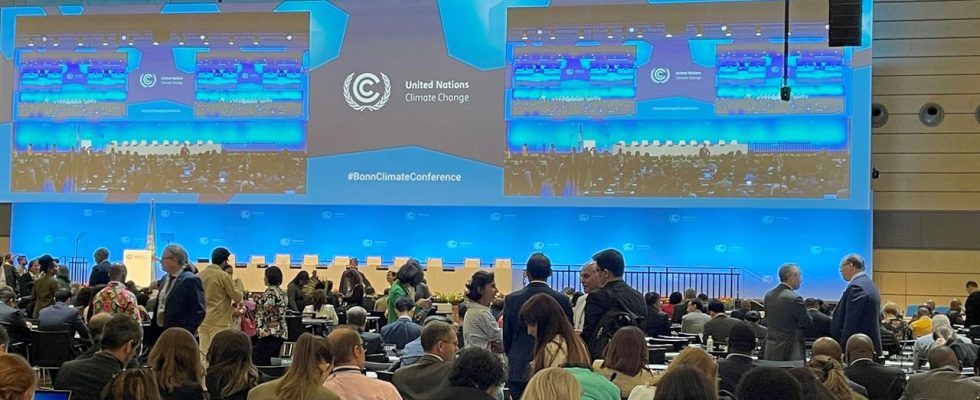There are only six months left until the next world climate conference in Dubai. The preliminary negotiations are now taking place in Bonn. The focus is on the implementation of the Paris climate agreement – experts warn of failure.
Delegates from all over the world are preparing for the next UN climate conference in Bonn. At the start of the two-week consultation, the Federal Government Commissioner for International Climate Policy, Jennifer Morgan, called for a “broad coalition for an ambitious global climate policy”.
In Bonn, the course must be set for a successful course of the climate conference COP28, which takes place from November 30th to December 12th in Dubai. At COP28, “pioneering decisions” would have to be made, “through which we can take a big leap towards a climate-friendly, sustainable and therefore better world,” Morgan continued.
“We are sleepwalking towards an abyss”
The special representative referred to the dramatic assessment of the situation by the Intergovernmental Panel on Climate Change (IPCC) in its March report. This “has shown us with brutal clarity: We are not doing enough and as a world community we are sleepwalking towards an abyss,” Morgan said.
At the Bonn conference, which takes place every year in preparation for the next world climate conference, the main focus is on the implementation of the Paris climate protection agreement of 2015 and thus on the progress and failures in the fight against global warming. In addition, the financing of climate protection and energy transition as well as the compensation for climate damage in developing countries will be discussed.
At the COP27 world climate conference in Egypt last year, a fund was approved to compensate for climate-related damage in particularly vulnerable countries.
criticism of aid organizations
At the beginning of the Bonn talks, the aid organization Oxfam accused the rich industrialized countries of not providing sufficient support to poorer countries in climate protection and of oversimplifying the figures. According to an Oxfam report, in 2020, instead of the promised $100 billion (93 billion euros), at most a quarter of the sum was paid.
The donor countries, on the other hand, stated that they had paid 83.3 billion dollars. Oxfam also criticized the fact that the subsidies from the industrialized countries were not adapted to the actual climatic changes on site and were therefore too low.
Federal Environment Agency demands more speed
In Germany, too, one must now speed up, said the President of the Federal Environment Agency, Dirk Messner. “We are now at the point where we really have to accelerate climate protection,” said Messner. The pace must be tripled.
According to the Climate Protection Act, German greenhouse gas emissions must first be reduced by 65 percent by 2030. By 2045, Germany wants to be climate-neutral, i.e. not emitting more greenhouse gases than are absorbed, for example, through forests.
The Paris Agreement sets the goal of limiting global warming to 1.5 degrees if possible, but at least well below two degrees compared to the pre-industrial age. According to experts, however, the earth is heading for a warming of between 2.4 and 3 degrees on the current course.
With information from Bianca Schwarz, ARD Berlin

